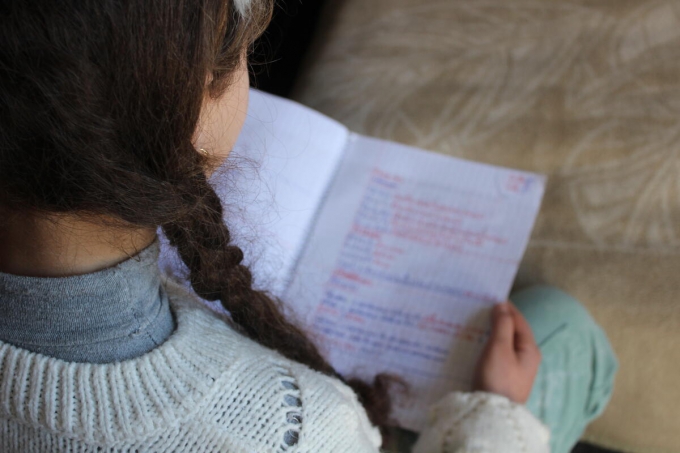STATEMENT: One million children left without education in Lebanon after public schools shut their doors

Beirut, 19 January 2023 – Teachers in Lebanon are striking over pay and working conditions, adding to an education crisis that is leaving an estimated one million children without education, said Save the Children.
Strikes started on 9 January, with teachers working the ‘morning shift’, teaching primarily Lebanese children. On 10 January, in order to prevent tensions, the Ministry of Education and Higher Education announced the suspension of afternoon classes, which are primarily attended by Syrian refugee students. As a result, all public schools in Lebanon are now closed, bringing the estimated total number of children currently out of school to over one million. This includes almost 300,000 students who are registered to attend the morning shift and almost 170,000 children from the afternoon shift, as well as over half a million children who were already out of school.
Jana* is a 11-years-old Lebanese girl, from Northern Lebanon has been out of school since the start of the strikes. She told Save the Children:
“My dream was to become a doctor, now I only dream about going back to school. I love going to school and my favourite subject is science. I was heartbroken when our teachers told us the school will close due to the strike. It reminded me of the COVID-19 days and those weren’t fun times. Just like before, my days pass with nothing to do. I don’t know how long it will be until I can go back to school. School was my escape, now I don’t have anywhere else to go. I’m scared of the future.”
Lebanon is currently witnessing a series of strikes in various sectors, reflecting the severe level of needs in the country. The socio-economic crisis has pushed three-quarters of the population into poverty, with frequent power cuts and a worsening cash crisis deteriorating living conditions for millions of people.
Firas, a teacher at a public school in the North of Lebanon supported by Save the Children, said:
"The education crisis in Lebanon has reached a breaking point with the closure of public schools for the past 2 weeks. The closure of schools in Lebanon is not only a setback for our students' education, but also a financial burden for teachers who are already struggling with low wages. The education crisis began with the COVID-19 pandemic in 2020 and later with the shortened curriculum and shift to online classes. Teachers in Lebanon are struggling to make ends meet, with transportation costs eating into our already low salaries. The Government must take immediate action to address the education crisis and support the educators who are working tirelessly to educate our children."
Jennifer Moorehead, Save the Children’s Country Director in Lebanon said:
“With the dire impacts of the economic crisis, teachers can no longer afford to go to work and many schools cannot cover running costs to keep classrooms lit or heated during the winter period. These school closures have already caused a precipitous drop in learning, which is driving drop-out and disengagement from education. There are increasing requests from out-of-school Lebanese and Syrian children to access community-based non-formal education.
“The education of Lebanon’s children is the most essential factor necessary for the recovery and future of the country. However, this vital sector is increasingly facing challenges and is now in crisis with millions of children at risk of losing out on quality learning for the fourth consecutive school year. The priority has to be getting children safely back to school and to ensure a sustainable solution to teacher wellbeing.”
Save the Children urges the Government of Lebanon to urgently seek a resolution which will lead to schools being re-opened and to facilitate the registration and safe return of all children to school. Alongside an immediate resumption of education for all children, a long-term, conflict sensitive solution also needs to be found, which addresses the root causes of the problem.
Save the Children has been working in Lebanon since 1953 and co-leads the Education Sector in Lebanon. For over six decades, Save the Children has used rights-based approaches to increase access by children, adolescents, and youth to quality education; to strengthen child participation, wellbeing, and protection at the family, school and community levels; and to increase food security and access to livelihood opportunities, clean water and proper shelter.
 Lebanon
Lebanon